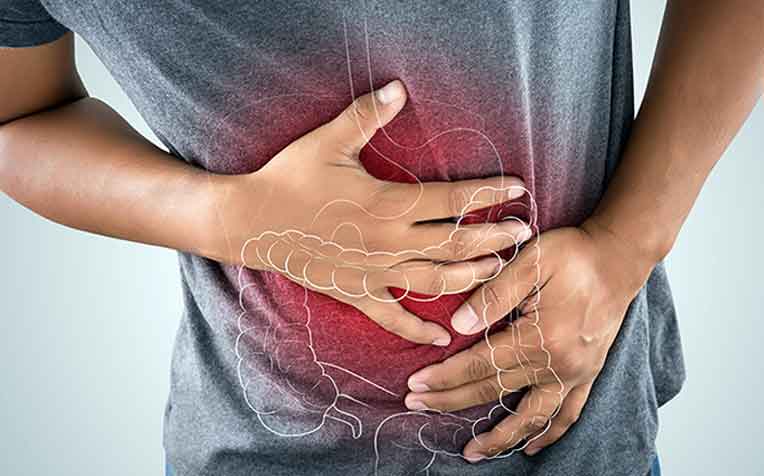
Up to one in 10 Singaporeans has irritable bowel syndrome (IBS). Ms Cherry Li, Senior Dietitian,
Department of Dietetics, and
Dr Wang Yu Tien, Senior Consultant,
Department of Gastroenterology and Hepatology, both from
Singapore General Hospital (SGH), a member of the
SingHealth group, share how avoiding certain types of foods may help relieve IBS symptoms. (iStock photo)
Irritable bowel syndrome (IBS) is typically associated with gastrointestinal symptoms such as flatulence, cramping or a bloated stomach.
"Abdominal bloating is a common complaint and may be due to numerous medical conditions involving both the gastrointestinal tract as well as other organs," says Dr Wang.
Related article:
Got questions about IBS? Ask our specialist now!
When the cause of a bloated stomach and other IBS symptoms is the fermentation of poorly absorbed foods in the large intestine, a diet low in highly fermentable foods has been found to help.
A low FODMAP diet can help if you have IBS
FODMAPs are short-chain carbohydrates. The term FODMAP stands for Fermentable Oligosaccharides, Disaccharides and Monosaccharides, and Polyols.
"FODMAP foods are poorly absorbed in the small intestine and when they travel to the large intestine, bacteria ferments them, which may give rise to wind, bloating and cramps," explains Ms Li. These poorly absorbed foods also pull water into the intestines, which can cause watery stools and diarrhoea, she adds.
Examples of FODMAP foods include:
| Fructose | Honey, high fructose corn syrup (HFCS), fruits such as apples, mango, pear, watermelon |
|
| Lactose | Dairy products such as ice cream, milk, milk powder, soft cheeses, yogurt, custard |
| Fructans | Vegetables such as artichoke, garlic, onion; grains such as barley, rye, wheat: prebiotics added into foods such as inulin, FOS (fructo-oligosaccharides) |
| Galatans | Beans, legumes, lentils, soy |
| Polyols | Sorbitol, mannitol, xylitol, maltitol (very often found in 'sugar-free', 'low-carb' and 'diet' products); and stone fruits such as avocado, apricots, cherries, nectarines, peaches, plums |
Related article:
How to prevent belching discomfort and excess burping
Consult a dietitian before adopting a low FODMAP diet
The dietitian will carry out a dietary and nutritional evaluation based on your gastric symptoms before recommending the low FODMAP diet. Typically, you will restrict FODMAP-rich foods for three weeks. The dietitian will recommend alternative foods to make sure your diet remains nutritionally balanced.
If your gastric symptoms respond to the new diet, your dietitian will reintroduce the restricted FODMAP foods one by one, to assess your level of tolerance to the food.
"In this way the dietitian will create an individualised eating plan for you, limiting trigger foods, while ensuring your diet is nutritionally balanced for the long term," says Ms Li.
Related article:
Stomach cancer – Signs to look out for and risk factors
--
Articles on
HealthXchange.sg are meant for informational purposes only and cannot replace professional surgical, medical or health advice, examination, diagnosis or treatment.